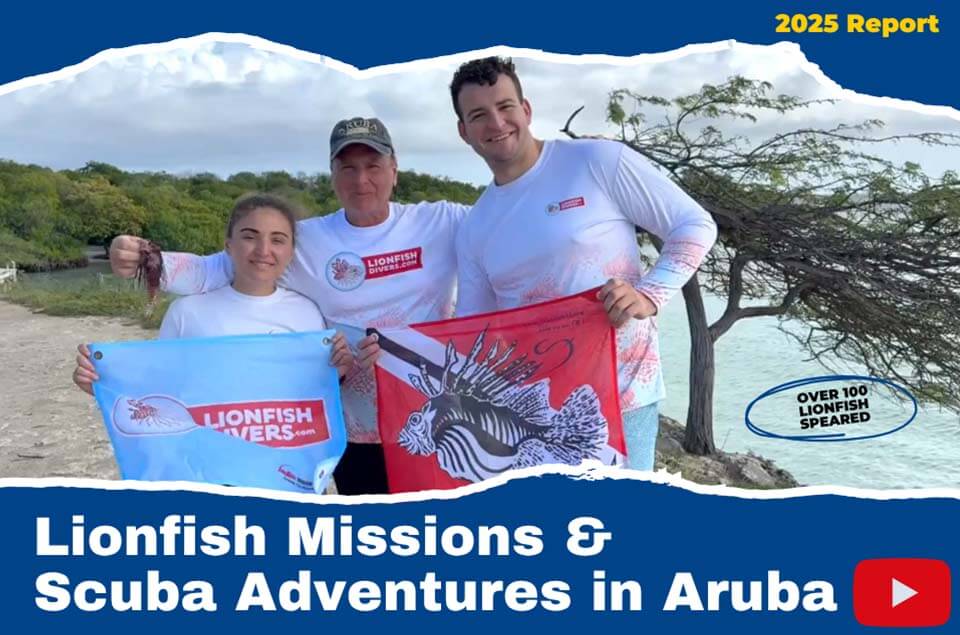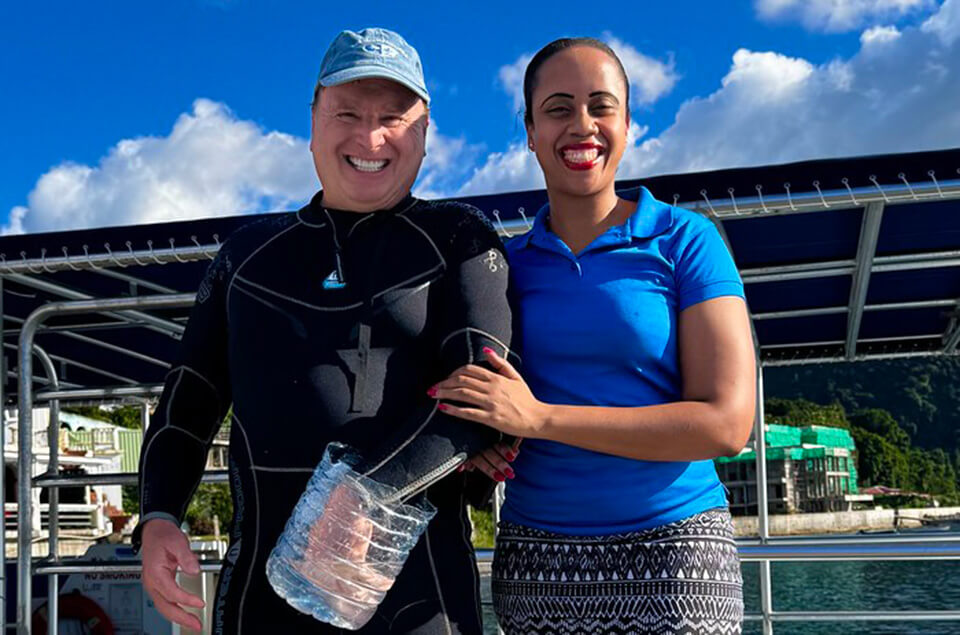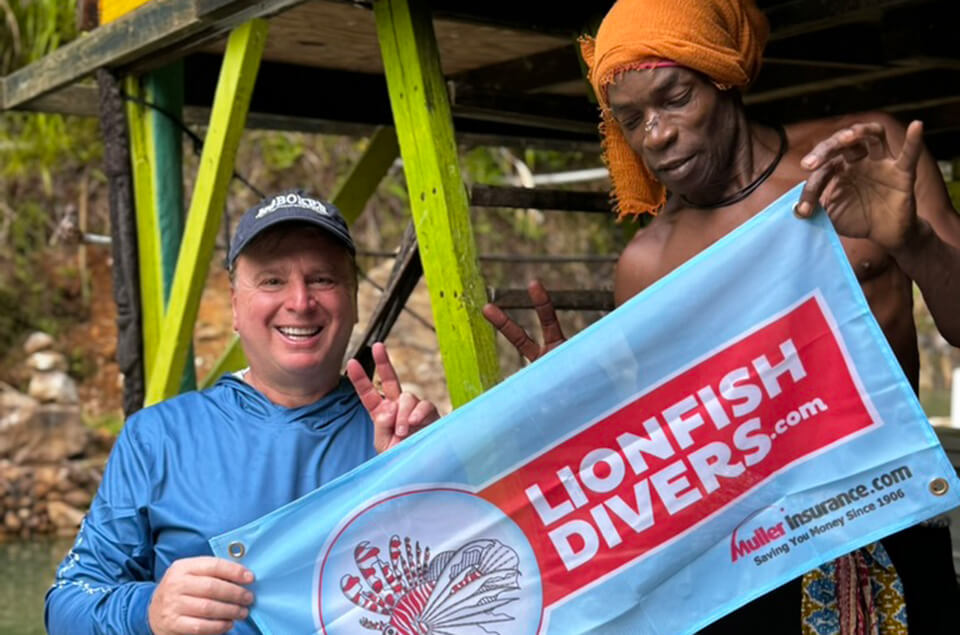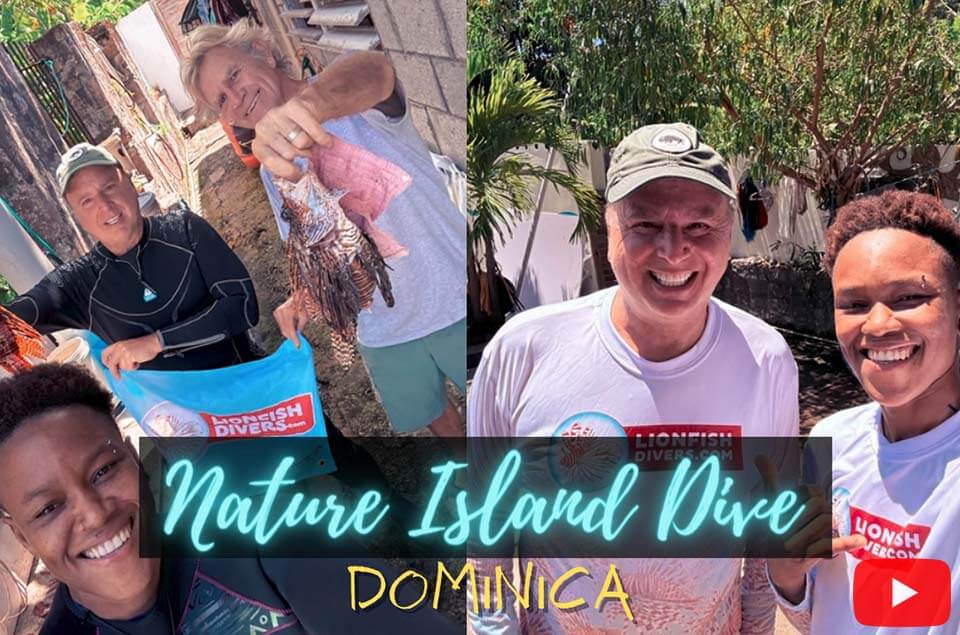30 Best Places to Hunt Lionfish
Why Hunt Lionfish?
Lionfish are a beautiful yet destructive species of fish that are unfortunately found in the Caribbean, Atlantic, and Mediterranean. Native to the Indo-Pacific region, these fish have been accidentally or intentionally released into these areas, where they now pose a serious threat to the aquatic ecosystems.
With no natural predators, lionfish populations have exploded in the Caribbean, Atlantic, and Mediterranean. They are now found in many areas from the southern US coast to the Caribbean and down to South America. These invasive fish have spread so quickly and widely that they are now considered one of the greatest threats to marine life in the areas they inhabit.
Lionfish are voracious eaters, consuming large amounts of fish and invertebrates. They have a broad diet, meaning they consume almost anything they can fit into their mouths. This has a devastating effect on the food chain, as they often consume juvenile fish and other species that are vital to the health of the ecosystem.
Lionfish also have a very high reproductive rate, producing thousands of eggs every few days. This means that the population can quickly multiply and overwhelm local species, leading to an ever-increasing problem.
How to Control Lionfish
The only way to effectively control the lionfish population is through direct human intervention. This means people must dive and hunt lionfish to reduce their numbers and help protect the marine environment.
The Caribbean, Atlantic, and Mediterranean are blessed with some of the most beautiful coral reefs in the world, and the lionfish invasion is a serious threat to these fragile ecosystems. Fortunately, there are many amazing places in these areas where divers can go to hunt lionfish and help protect the environment!
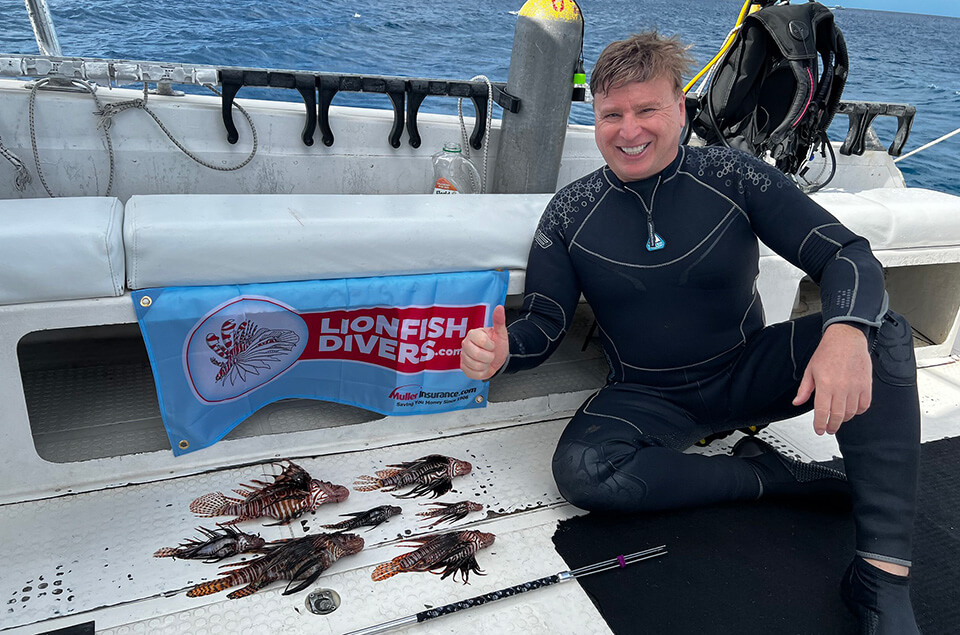
Over 125 different Dive Shops in 30 different locations
Within the file, you’ll uncover a treasure trove of information about dive shops everywhere, each engaged in the noble pursuit of hunting lionfish. To help you navigate through this rich tapestry of underwater adventures, we’ve thoughtfully marked the dive shops that I’ve personally had the pleasure of visiting with a distinctive red star. These establishments are more than just places of business; they are hubs of conservation efforts and have made a significant impact on the local marine ecosystems.
What truly makes these dive shops unique, apart from their dedication to lionfish hunting, are the remarkable individuals who run them. They are the unsung heroes of the ocean, passionately committed to protecting the underwater realms they call home. Many of them have received the esteemed title of “Lionfish Person of the Week,” an acknowledgment of their tireless efforts in combating the lionfish invasion and preserving the Caribbean’s natural beauty.
Rules and Regulations for Hunting Lionfish
There are many ways to hunt lionfish; here are some of the tools you can use. Illegal fishing is a big problem around the world, especially in the Caribbean. There are a lot of strict regulations. For example, spearguns are not allowed to be used in most countries. This is because amateur fishermen and careless tourists can damage coral found in the water. While taking out a lionfish is great, doing it at the expense of a coral that has been developing for decades is not worth it. A lot of places may or may not enforce their rules, if any, but a general guideline to follow is to always go out with a Dive Shop. Not only do they know the area best, but they will help you be conscious of the marine life.
If you have never been diving before, you must first get your Open Water Certification. Dive shops may have additional requirements, such as taking courses for lionfish culling. For Example, in Bonaire, you can only use an ELF (Eliminate Lionfish), and you must take a course and be accompanied by a Dive Operator.
Hunting lionfish is a great way to help protect the environment and prevent further damage to the coral reefs in the Caribbean and Atlantic. By doing our part to reduce the lionfish population, we will help to ensure that these beautiful and fragile ecosystems remain healthy and vibrant for years to come.

